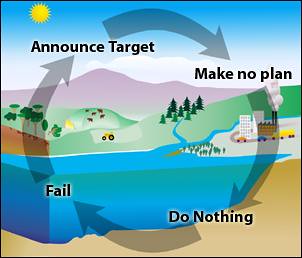The latest episode of The 9th Floor is out, in which Jenny Shipley opposes "middle class welfare":
During the day we spent with Shipley she said New Zealand needs to take the "blowtorch" to middle class welfare, with student allowances and healthcare areas where middle and higher income earners should pay more.Firstly, I think many people would disagree with her contention that subsidised healthcare (and universal superannuation, and free education and so on) is "welfare" rather than the basics of a decent society. And they'd be appalled to hear her belief (in the Radio New Zealand version) that "the middle class has assets and they should be using those first before they put their hand in the pocket of someone else, such as the state." Or, in English, if you get sick you should sell your house. There's a name for that country, and it's not "New Zealand", but "the USA" - and kiwis are very clear that we don't want to live in that shithole.
She finds it "morally bankrupt" that the country doesn't have an honest discussion about this and that she personally feels "sick" that on her income she can't opt out of subsidised health care.
But secondly, even if we restrict the idea of "middle class welfare" to things like Working For Families, the reason we have it is because the NeoLiberal "reforms" which Shipley championed - and still champions - drove down incomes and made it impossible for the middle class to earn a decent living, while demanding that they pay more. And that simply was not politically sustainable (and this was before the housing bubble really began to bite). If Shipley wanted to eliminate it, she'd be advocating for higher wages, more secure employment, better conditions - but she's not. Which tells us that what she really stands for is driving the middle class into poverty and reducing us to a tenuous, insecure existence. Fortunately, that idea is as politically acceptable now as it was in 1999 when we de-elected her. But it is nice of her to remind us in an election year of what National really stands for.






